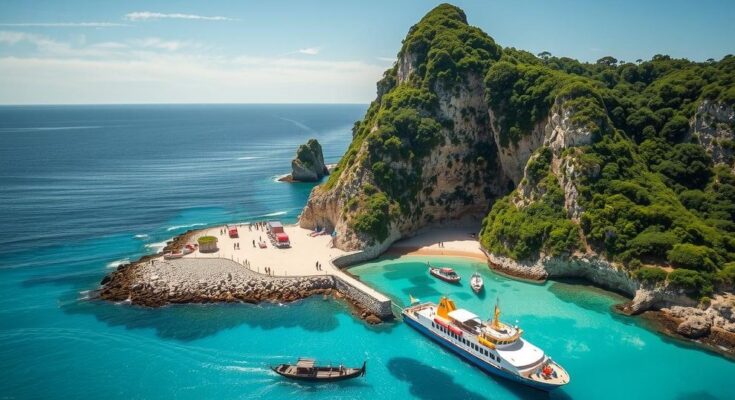In his first year, President Javier Milei’s administration has faced friction with Brazil, highlighted by his comments on severing ties with Brasília. Despite tensions, diplomatic efforts have persisted to maintain trade relations, as Brazil plays a crucial role in Argentina’s economy. Key diplomatic actions have emerged in the energy sector and in managing diplomatic relations with Venezuela. However, Milei’s approach has caused unease among his allies, raising concerns regarding fugitives from Brazil’s January 8 incidents.
The relationship between Brazil and Argentina has been marked by a combination of tension and pragmatism during President Javier Milei’s first year in office. Notably, the meeting between Presidents Milei and Lula at the G20 summit revealed underlying strains, exemplified by Milei’s indications of potentially severing relations with Brazil’s capital. Nonetheless, diplomatic efforts have been made to uphold trade relations, which are crucial given that Brazil remains Argentina’s primary trading partner, accounting for approximately 17% of Argentine exports and 24% of imports.
Despite the ongoing friction, both nations are navigating challenges related to bilateral trade, which has experienced a decline since 2014. One of President Lula’s primary objectives during his third administration is to enhance economic exchange, though his Argentine counterpart’s strict fiscal policies complicate these efforts. The energy sector has seen examples of cooperation; for instance, in May, swift diplomatic actions facilitated a Petrobras tanker’s diversion to the Paraná River, assisting in alleviating an energy crisis in Argentina.
Additionally, Brazil has stepped forward to manage Argentina’s interests in Venezuela following the expulsion of Milei’s diplomatic representation by Nicolás Maduro. However, Milei’s attendance at an event with former Brazilian President Jair Bolsonaro has created unease among his allies within Argentina. The presence of numerous individuals who fled Brazil’s January 8 incidents in Argentina adds another layer of complexity to their relationship. Although the Argentine government has pledged non-interference, the ultimate decision regarding these fugitives lies with President Milei.
The Brazil-Argentina relationship has historically been intertwined, primarily driven by trade, cultural exchanges, and political dynamics. However, recent political changes, notably the election of President Javier Milei, who adopts an ultraliberal stance, have introduced tensions into this bilateral connection. The backdrop of these tensions includes a continuing decline in bilateral trade since 2014 and recent geopolitical developments requiring diplomatic negotiation and cooperation. Both nations face challenges in revitalizing their economic ties while addressing complex political scenarios, including issues related to asylum seekers and diplomatic relations.
In summary, while President Milei’s first year in office has ushered in notable tensions in Brazil-Argentina relations, particularly evident in his meetings with President Lula, the two nations continue to pursue pragmatic collaboration. Diplomatic efforts in trade and energy have highlighted the importance of maintaining ties amidst political friction. The successful navigation of these challenges will depend heavily on Milei’s ability to balance domestic pressures with the necessity of strong bilateral relations with Brazil.
Original Source: www1.folha.uol.com.br




